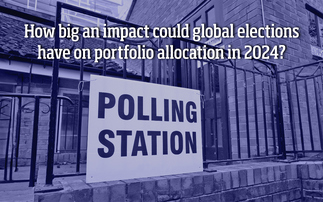Investors need to be aware of heightened liquidity risk, leverage and credit risk as an extended period of negative interest rates threatens to force many to chase returns, CFA UK has warned.
The economic downturn caused by Covid-19 "could trigger an historically unprecedented shift to negative rates in the UK", CFA UK claimed, with the Bank of England actively considering lowering Bank Rate even further than its current 0.1% level.
Elsewhere around the world, the assumption that negative and ultra-low interest rates would be transitory seem likely to be proven incorrect.
Should this environment prevail for several years, this "could have a deeper, broader and longer-lasting impact than before, due to the Covid-19 pandemic", CFA UK said.
Investors flock to emerging markets to benefit from post-coronavirus recovery
CFA UK CEO Will Goodhart said that keeping negative interest rates lower for longer was designed to address the risk of the economy falling into a depression, rather than a recession. However, he countered, "risk doesn't just go away; it arises elsewhere".
"We're currently seeing more liquidity risk, leverage and credit risk in portfolios as people chase returns," Goodhart explained.
"Investment professionals need to be aware of this, monitor it and communicate the risks properly to clients."
CFA UK said the most likely of three macro-scenarios it had identified to map the next 18 months was of a ‘U-shaped' economic recovery, where short-term rates just stay positive in the US and UK but stay lower for longer.
Market distortions
This is likely to create significant market distortions, it reasoned. G7 government bonds, for instance, now offer asymmetric risks and reduced diversification benefits to multi-asset portfolios.
Meanwhile, capital is likely to shift away from low-yield financial centres to those with higher policy rates such as the US and emerging markets; the continued rise of special purpose acquisition companies risks investors' capital being tied up in opaque transactions they know little about.
Further, corporate balance sheets are deteriorating, leading to a swathe of credit ratings downgrades; and appetite for alternative investments is rising, offering typically higher returns with much less liquidity and transparency.
BlackRock terminates cash creation/redemption on a range of credit ETFs
Professionalism advisor Andy Burton said the conclusion of CFA UK's research that the risk-reward trade-off has worsened is "worrying for both the investment profession and end-investors".
"It is critical that investment professionals communicate openly with clients, perhaps more than ever before," Burton said.
"A good way of laying out the risks and giving comprehensive guidance is through focused use of investment policy statements, which we could see become more important as investors increasingly shift towards alternative investments."














